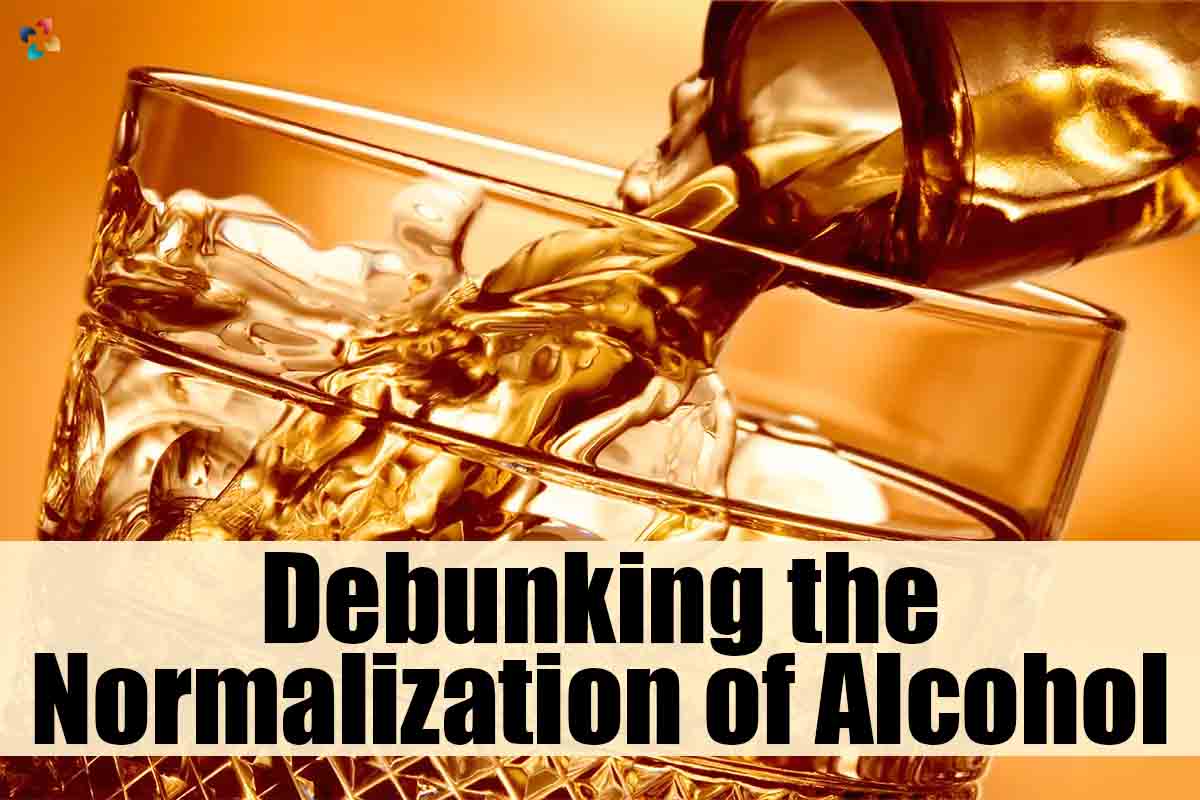Alcohol is a commonly accepted substance that is consumed by people all around the world. However, Alcohol Normalization in society can often lead to individuals overlooking its negative effects on physical and mental health. In this article, we will discuss Alcohol Normalization, the potential harm it can cause, and ways to debunk its normalization.
What is Alcohol Normalization?
The normalization of alcohol refers to the societal acceptance and promotion of alcohol consumption as a normative behavior. It is commonly seen in media, advertisements, and social gatherings, where alcohol is frequently portrayed as a means of socializing and having fun. This normalization often results in individuals overlooking the potential harm that excessive alcohol consumption can cause to their physical and mental health.
The Negative Effects of Alcohol Consumption
Alcohol consumption can have negative effects on physical and mental health, which can range from mild to severe. Some of the physical effects of alcohol consumption include:
- Increased risk of cancer – Long-term alcohol consumption is linked to an increased risk of cancer, especially cancers of the liver, mouth, throat, and breast.
- Liver damage – Heavy alcohol consumption can cause liver damage, including inflammation and scarring, which can lead to liver failure.
- Cardiovascular problems – Excessive alcohol consumption can increase the risk of high blood pressure, stroke, and heart disease.
- Pancreatitis – Alcohol consumption can cause inflammation of the pancreas, which can lead to pancreatitis, a potentially life-threatening condition.
- Weakened immune system – Alcohol consumption can weaken the immune system, making individuals more susceptible to infections and diseases.

In addition to physical health risks, excessive alcohol consumption can also have negative effects on mental health, including:
- Depression and anxiety – Alcohol consumption can worsen symptoms of depression and anxiety, and may also increase the risk of developing these conditions.
- Memory and cognitive impairment – Heavy alcohol consumption can impair memory and cognitive function, leading to difficulties with learning and decision-making.
- Addiction – Alcohol consumption can lead to addiction, which can have a significant negative impact on an individual’s life.
Debunking Alcohol Normalization

Alcohol Normalization can have harmful effects on individuals and society as a whole. However, there are ways to debunk its normalization and promote responsible drinking practices. Here are some ways to do so:
- Promote education on the potential harm of excessive alcohol consumption – Providing individuals with information on the negative effects of alcohol consumption can help them make informed decisions about their drinking habits. This can include education on the physical and mental health risks of alcohol consumption, as well as information on responsible drinking practices.
- Encourage responsible drinking practices – Encouraging individuals to drink in moderation and avoid binge drinking can help to reduce the negative effects of alcohol consumption. This can include promoting the use of designated drivers and offering non-alcoholic beverage options at social events.
- Address the Alcohol Normalization in media and advertising – The portrayal of alcohol in media and advertising can contribute to its normalization. Addressing this issue can involve promoting responsible advertising practices and highlighting the negative effects of excessive alcohol consumption in media and entertainment.
- Increase support for those struggling with addiction – Addiction to alcohol can have a significant negative impact on an individual’s life. Increasing support for those struggling with addiction can involve providing access to resources and treatment options, as well as reducing the stigma surrounding addiction.
- Shift societal attitudes towards alcohol – Promoting a shift in societal attitudes towards alcohol can involve encouraging individuals to prioritize their physical and mental health over alcohol consumption. This can involve promoting alternative activities and social events that do not involve alcohol.
BOTTOM LINE
Alcohol Normalization consumption can have harmful effects on physical and mental health, as well as society as a whole. By promoting education on the potential harm of excessive alcohol consumption, encouraging responsible drinking practices, addressing the normalization of alcohol in media and advertising, increasing support for those struggling with addiction, and shifting societal attitudes toward alcohol, we can debunk its normalization and promote responsible drinking practices.

It is important to recognize that alcohol consumption is a personal choice, and individuals have the right to make their own decisions about their drinking habits. However, it is also important to acknowledge the potential harm that excessive alcohol consumption can cause and take steps to mitigate these risks.
Ultimately, debunking Alcohol Normalization involves promoting responsible drinking practices and creating a culture where individuals are empowered to make informed decisions about their alcohol consumption. By doing so, we can reduce the negative effects of alcohol consumption and promote a healthier and happier society.







